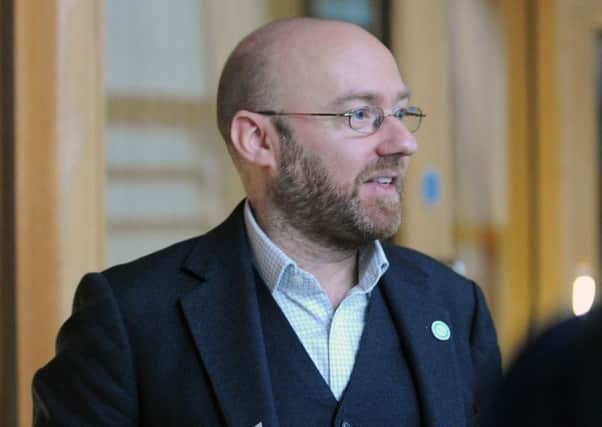Dominic Hinde: Budget deal a milestone for Green politics in Scotland


Behind the scenes though frustrations grew, and the disdain for the Greens inside the SNP machine was evident. The ‘both votes SNP’ strategy, recently debunked by John Curtice as counterproductive, showed a party bent on total monopoly of both voters and the discourse.
Last time the Greens took part in budget negotiations – in the SNP’s first term when the party had a tiny majority – they were able to extract small concessions on relatively prosaic things like the climate challenge fund. This time around Harvie knew he could push for more or send the SNP to deal with the Tories. The result was the first ever large scale budget change by a Green party in the UK.
Advertisement
Hide AdAdvertisement
Hide AdAs soon as the deal was announced Labour hit twitter and started denouncing the Greens for supporting the SNP’s slashing of Air Passenger Duty, but as Harvie was happy to point out to them this is a question for 2018 when new legislation will allow the Scottish Government’s pet tax cut to take effect. The Tories are behind APD cuts too and next spring may be the ones the SNP need to help subsidise budget airlines registered in the Republic of Ireland.
The real black mark from a green perspective is that the Greens could not persuade Derek Mackay away from plowing billions into road projects at the expense of public transport, measures which it is widely acknowledged will eat into the recently declared ambitious climate change targets.
Elsewhere in Europe such trade-offs are common, especially in the world of German state politics where Greens have cut deals with regional governments of different colours for decades now. By pushing the SNP slightly to the left, the Greens have shown that they are capable of engineering concessions and reigning in the centrist managerial tendencies of the government. It is no secret that they demanded more than what they got, but when you have six MSPs and the government 63 you have to keep your powder dry.
Nor is this the first time the Greens have changed the government’s direction this year – last August Green social policy adviser and academic Daniel Heap worked out a loophole in devolution of welfare that allowed the SNP to limit sanctions against benefit claimants. At first the SNP denied it was possible but subsequently changed tack.
• READ MORE: Dominic Hinde: Would the SNP’s Nordic model work?
In the grand scheme of things, stopping the government from giving an effective tax break to high earners and keeping local government functioning might seem like standing still, but in challenging the centralisation and economic control over the rest of the country favoured by Derek Mackay they have set out their stall before council elections in May.
With some expected Greens gains and catastrophic polling for Labour of late, SNP led councils with Green support could become a pattern. Independence and European integration is the majority consensus amongst both SNP and Green members nowadays too, though economically they are still camped significantly to the left of the big nationalist tent.
Advertisement
Hide AdAdvertisement
Hide AdIndependent or not, one of the tasks facing the Greens in the current session is to establish themselves as a proactive force and a viable party of shared government in future. Today’s budget agreement was a step in that direction, but as their European partners can vouch it will not be an easy journey.
• Dominic Hinde is a European and environment journalist